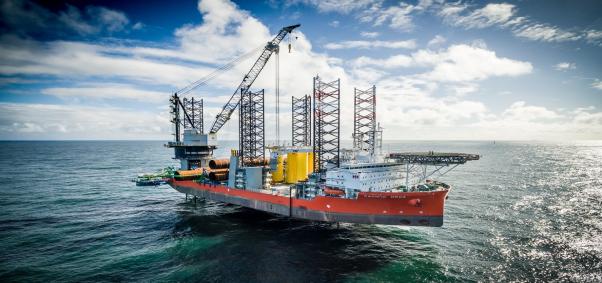
New report aims to galvanise action by economic and financial leaders in government and the private sector.
Editor’s note: The Report, “Unlocking the Inclusive Growth Story of the 21st Century” including graphics and other materials, is available at www.newclimateeconomy.report/2018
NEW YORK (September 5, 2018) — A major report released by the Global Commission on the Economy and Climate finds that we are significantly under-estimating the benefits of cleaner, climate-smart growth. Bold climate action could deliver at least US$26 trillion in economic benefits through to 2030, compared with business-as-usual.
The Report finds that over the last decade there has been tremendous technological and market progress driving the shift to a new climate economy. There are real benefits to be seen in terms of new jobs, economic savings, competitiveness and market opportunities, and improved wellbeing for people worldwide. Momentum is building behind this shift by a wide range of cities, governments, businesses, investors and others around the world, but it is not yet fast enough.
“We are at a unique “use it or lose it” moment”, said Ngozi Okonjo-Iweala, former Finance Minister of Nigeria and Co-Chair of the Global Commission. “Policy makers should take their feet off the brakes, send a clear signal that the new growth story is here and that it comes with exciting economic and market opportunities. US$26 trillion and a more sustainable planet are on offer, if we act decisively now.”
Unlocking the Inclusive Growth Story of the 21st Century is being presented to the United Nations Secretary-General António Guterres today at a global launch at UN headquarters in New York City. The report arrives just one week before the Global Climate Action Summit in San Francisco.
“The momentum from businesses, states, cities, investors and citizens is now unstoppable, not least because those taking bold climate action are already seeing tangible benefits,” said Paul Polman, CEO, Unilever and Co-Chair of the Global Commission. “But if we are to unlock the full benefits of this new low carbon growth opportunity and avoid runaway climate change, economic and financial leaders in both government and the private sector need to do even more, and fast.”
The Report highlights opportunities in five key economic systems – energy, cities, food and land use, water, and industry. It demonstrates that ambitious action across these systems could deliver net economic gains compared with business-as-usual and:
- Generate over 65 million new low-carbon jobs in 2030, equivalent to today's entire workforces of the UK and Egypt combined.
- Avoid over 700,000 premature deaths from air pollution in 2030.
- Generate, through just subsidy reform and carbon pricing, an estimated US$2.8 trillion in government revenues per year in 2030 - equivalent to the total GDP of India today - funds that can be used to invest in other public priorities or reduce distorting taxes.
“We can now see that this new growth story embodies very powerful dynamics: innovation, learning-by-doing, and economies of scale. Further, it offers us the very attractive combination of cities where we can move, breathe, and be productive; sustainable infrastructure that is not only clean and efficient, but also withstands increasingly frequent and severe climate extremes; and ecosystems that are more productive, robust, and resilient,” said Lord Nicholas Stern, I G Patel Professor of Economics and Government at the LSE and Co-Chair of the Global Commission. “Current economic models fail to capture both the powerful dynamics and the very attractive qualities of new technologies and structures. Thus we know we are grossly underestimating the benefits of this new growth story. And further, it becomes ever more clear that the risks of the damage from climate change are immense and tipping points and irreversibilities getting ever closer.”
The Global Commission calls on governments, business, and finance leaders to urgently prioritise actions on four fronts over the next 2-3 years:
- Ramp up efforts on carbon pricing and move to mandatory disclosure of cliamte-related financial risks;
- Accelerate investment in sustainable infrastructure;
- Harness the power of the private sector and unleash innovation; and
- Build a people-centred approach that shares the gains equitably and ensures that the transition is just.
“The purpose of this Report is to demonstrate how to accelerate the shift to this new growth path”, said Helen Mountford, Programme Director of the New Climate Economy and lead author of the Report. “It lays out the benefits of doing so, the challenges ahead, and the clear accelerators or actions, that can be taken to fully reap the rewards of stronger, cleaner, and more equitable growth.”
Former President of Mexico, Felipe Calderon, Honorary Chair of the Commission, said: “This is more than just a Report. It is a manifesto for how we can turn better growth and a better climate into reality. It is time we decisively legislate, innovate, govern, and invest our way to a fairer, safer, more sustainable world.”
Read the report at www.newclimateeconomy.report/2018/
--ENDS—
Additional Quotes from Global Commissioners
Sharan Burrow, General Secretary, International Trade Union Confederation: “Decisive climate action can create 65 million new jobs by 2030. This low carbon transition must be managed to ensure that for affected workers and their communities it is a just transition. Equally the opportunities from urbanisation along with cleaner development of industry, infrastructure, transport and services must deliver good jobs and shared prosperity. It will take dialogue, trust and transparency.”
Kristalina Georgieva, CEO, World Bank: “Climate change presents us with a clear choice. We must take the bold action this report recommends and urgently transition to a low-carbon global economy, a path that creates over 65 million new jobs and allows people to breathe clean air and live healthy, productive lives. The alternative is business-as-usual that will destroy economies, jobs and lives, especially in developing countries. The World Bank Group is supporting countries to make the smart choice and invest in resilience and low-carbon transformation.”
Carlos Lopes, Professor, University of Cape Town: “Africa is already at the forefront of many of the innovations driving bold climate action. In just the past few years, we have seen a solar revolution take place on the continent, along with innovations in public transport and climate risk insurance. Going forward, the right policies and supporting incentives can ensure that as we develop, we fully capture the new climate economy of the future: low-carbon, climate resilient economies that will deliver jobs and help lift people out of poverty.”
Caio Koch-Weser, Chair, European Climate Foundation: “The climate story is fundamentally an economic one. If we act boldly now, we will see higher productivity, greater social inclusion and more resilient economies. Finance Ministers particularly should pay close attention to the main message of this Report: climate action is the growth story of the 21st century.”
Naina Lal Kidwai, Chairman, Max Financial Services, India: “Momentum is building for a new climate economy all over the world with some of the most exciting examples in fast moving economies. India is emerging as a global climate pace setter, home to a cement company with the world’s smallest carbon footprint and innovations in energy efficiency. But we are also home to millions of people that are vulnerable to climate impacts, with the risks mounting each year, and we cannot afford to slow our pace of action now.”
Kristin Skogen Lund, Director-General, Confederation of Norwegian Enterprise: “Business follows the money, and the money can increasingly be found in low-carbon opportunities. With clear policy foundations from governments, this Report shows how we can unleash strong and vibrant business efforts to support climate ambition.”
About the Global Commission on the Economy and Climate:
The Global Commission on the Economy and Climate, and its flagship project the New Climate Economy, were set up to help governments, businesses and society make better-informed decisions on how to achieve economic prosperity and development while also addressing climate change.
It was commissioned in 2013 by the governments of Colombia, Ethiopia, Indonesia, Norway, South Korea, Sweden, and the United Kingdom as an independent initiative. The Commission comprises 28 former heads of government and finance ministers, and leaders in the fields of economics, business and finance. It is currently chaired by Ngozi Okonjo-Iweala, Paul Polman, and Lord Nicholas Stern.
Unlocking the Inclusive Growth Story of the 21st Century is the fourth major report of the Global Commission. It was prepared by teams from the following institutions: SYSTEMIQ, the Energy Transitions Commission, the Coalition for Urban Transitions, the Food and Land Use Coalition, the Overseas Development Institute, the Brookings Institution and World Resources Institute (Managing Partner).
The report is available at www.newclimateeconomy.report/2018/. For more information go to www.newclimateeconomy.net.
For media inquiries contact:
Ferzina Banaji, Ferzina.banaji@newclimateeconomy.net, +1 202 372 5885
Jessica Brand, Jessica.brand@newclimateeconomy.net,
Ally Friedman, afriedman@wri.org






